I first met Daniel Backer in the Thomas Pynchon subreddit. He'd just published his new book Lionel Lancet and the Right Vibe and was offering a free copy to anyone who wanted to read.
Naturally, I couldn't resist.
From page one, the book surpassed all expectations, and I couldn't put it down. I enjoyed the book enough to include it in my list of cannabis/psychedelics must-reads.
However, I wanted to dive deeper with Backer. He was gracious enough to answer a few of my questions, and once again he did not disappoint!
Immediately below, is a brief description of the book, swiped from its Goodreads page.
After that is a compelling Q&A with Backer.
At the very bottom of this post, you can also find one of my favorite excerpts from the book, a scene where the protagonist gets over-the-top, ridiculously high on cannabis. I don't want to spoil the excerpt too much just go read it below!
Book Description: Lionel Lancet and the Right Vibe
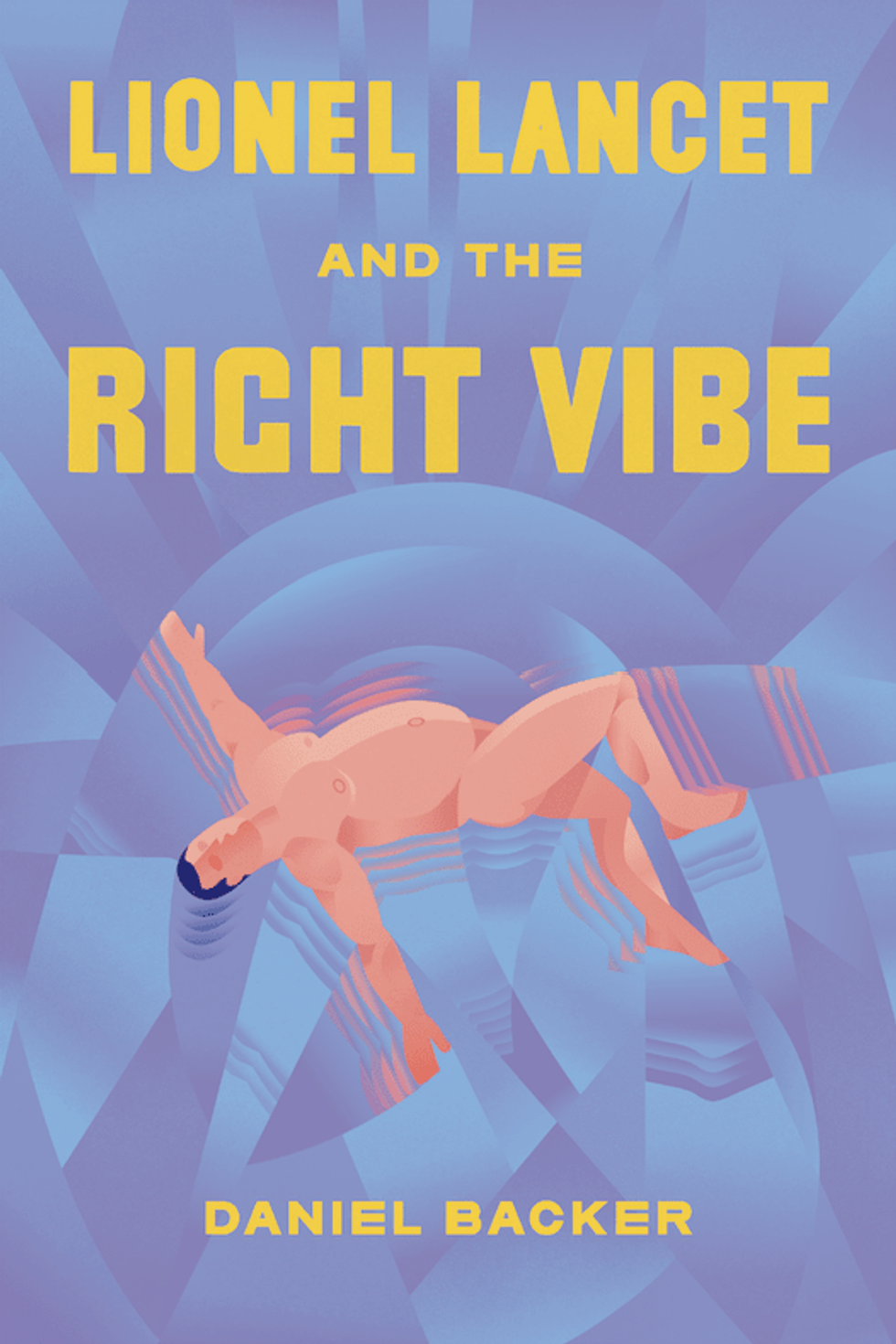
When Art Lancet dies, his lazy grandson Lionel is named the heir to his estate. Lionel, who spends his days smoking weed and watching atheists on YouTube, expects wealth from his inheritance and a guarantee that his life will be work-free.
Instead, he inherits a foundation mired in legal trouble and a job at the Hotel Bellehaven, a seaside resort managed by a failed film producer who verbally abuses him in front of guests.
With lawsuits looming, Lionel reluctantly faces the almost insurmountable obstacle of working for a living. To make matters worse, a famous actress takes an interest in him and tests his atheism with her spiritual bent.
Lionel worries that he'll be stuck with a beautiful celebrity at a luxurious hotel forever until he begins to suspect that there might be a conspiracy to kill him in a ritual sacrifice.
Blending noir and post-60s psychedelia, Lionel Lancet and the Right Vibe is a satire of self-aggrandizing spirituality, cultural appropriation, and dark money in right-wing politics.
The Bluntness: What type of audience do you think would appreciate this book most?
Daniel Backer: I think Lionel will resonate with anyone who likes a fun read. I was inspired by philosophical fiction, and there is a lot of that in the book, but I tried to write it in such a way that you don’t have to have a strong academic background to enjoy it. That being said, every scene is an attempt to depict philosophical ideas about how to interpret reality. If you like trippy stories about big ideas balanced with humor and heart, this book is for you.
TB: Could you talk about the cannabis and psychedelic themes in this book? What did you set out to explore here?
DB: Cannabis and psychedelics have a dual nature: they can expand your consciousness, but they can also lead to indulgence, grandiosity, and frankly, silly bullshit. This contrast has always been hilarious to me. I don’t think the downsides undermine the benefits, but they’re equally present in the culture and personalities surrounding drugs.
For example, figures like Ram Dass and Terence McKenna were a source of inspiration in the way they talked about diminishing the ego while relishing in the attention they received. I don’t see this as hypocrisy, but it amounts to a uniquely American expression of spirituality: borrowing from other cultures, hotwiring transcendence with drugs, the cult of personality that elevates the guru to a celebrity, and the commodification of the culture into a brand identity. I have a lot of respect for these people, but they’re still funny to me, and I will continue to put pieces of them in my characters.
Beyond that, I sincerely believe that cannabis and psychedelics offer a visceral experience of what philosophy gets at through often inaccessible modes of communication. You can trudge through an old book about how objects and symbols are constructs of the mind, or you can see that firsthand with substances. But you’re often left feeling like, “So what? I’ve still got to get up and go to work in the morning and manage my relationships.”
In Buddhism, they call enlightenment the final disappointment, and I think that’s what philosophy, cannabis, and psychedelics inevitably show you. My goal was to explore all of that.
TB: Much of the plot revolves around a mysterious psychedelic substance you call Adhikashara. What can you say about this?
DB: Lionel’s grandfather claims that Adhikashara reliably shows you what holds the ultimate power in your life. The assumption is once you figure out the core belief that drives you, it’s smooth sailing after that. I think this encapsulates a perspective on spirituality that has an American sense of striving and attainment baked in. It’s not spirituality for its own sake. It’s spirituality with a goal, a prize at the end, a piece of information that will unlock everything for you.
I think that’s what draws most people to psychedelics. You want to come away with a nugget of wisdom you can either use or brag about on a podcast. But the real goal in my mind is to loosen your grasp on narratives and the desire to unite everything with a simple explanation. Certainly there are plenty of profound realizations to be gleaned in that headspace, but they often lose their weight when you come down, or you can’t piece them back together, or they’re so abstract and universal that they’re effectively useless.
For example, Adhikashara shows Lionel’s grandpa that the ultimate power in his life is vibrations. Lionel is an atheist, so that answer is too hippy-dippy for his taste, but he still wants to find The Right Vibe for himself, and I don’t want to give away what that is for him, but it reflects my ambivalence about psychedelics and belief.
TB: Would you like to comment on your own relationship with cannabis/psychedelics and how it's impacted your work as an artist?
DB: I had a very unhealthy relationship with cannabis, and after many failed attempts at quitting, I’ve been THC-free for a year and two months now. It made me more creative in the moment, but long term, it made me cloudy and erratic. I do miss it, and I readily admit that on a first draft, cannabis would help me get inspired, but the editing process takes focus and routine, and cannabis really gets in the way of that.
Believe it or not, most of the drug content in my books has come from podcasts and the lore surrounding psychedelics. There is a lot of similarity between philosophies about language and the psychedelic experience, so when I feature tripping in my books, it is intended to explore ideas about dismantling symbols, the perception of objects, and modes of interpretation, as well as poke fun at indulgent spirituality.
I’ve had my own experiences, but I’ve learned that psychedelics are medicines that should be treated with respect. The visuals and encounters with interdimensional entities are mind-blowing, but they’re just the light show on top of the neurochemical bath, in my opinion. So even though that headspace has been a big inspiration, I’m critical of the culture around psychedelics and the messages they provide.
The primary drug that made this book happen was caffeine.
TB: The protagonist Lionel Lancet consumes so much cannabis throughout. What can we say about his relationship with pot?
DB: I think Lionel’s relationship with cannabis is a reflection of my own self-medication. Many people have commented that Lionel probably has ADHD or depression, but beyond any specific diagnosis, it’s pretty clear that he uses it to fill a void. I believe I did the same. I learned that I have a chemical imbalance, and cannabis helped me manage that for about ten years… until it got out of hand.
But some of the withdrawal symptoms I experienced after quitting included depersonalization and derealization, where everything becomes unfamiliar, absurd, and somehow unreal. I channeled this into Lionel’s dissociative lapses. Since he’s an atheist who believes only in the material world, I thought it would be cool to give him experiences where the material world seems fake and unreliable.
TB: What are your thoughts on drugs and literature?
DB: I think a good book can be psychedelic without mentioning drugs at all. If you really engage with the writing, reading can fuck you up. I recently finished reading The Age of Innocence by Edith Wharton, and the climax of that book felt so trippy, even though it took place at a fancy dinner party. I went on a long walk after I finished it, feeling so altered with all my senses heightened. It sounds like I’m being poetic, but a good book can do that to you. The same thing happened after I saw The Green Knight in the theater. I just walked around afterward in an afterglow and felt very existential.
That said, I love a good trip scene. I was inspired by Pynchon’s psychedelic scenes in Gravity’s Rainbow and the drug-induced hallucinations in The Three Stigmata of Palmer Eldritch by Philip K. Dick. There is something so fun about a character seeing things that aren’t there and questioning their reality. The philosophy is interesting to me, but the aesthetic and the mood are just as cool.
TB: Could you talk about your process as a writer?
DB: I did improv in Chicago for five years and trained at the major schools there, and they beat it into my head that left-brain writer types suck at being funny because they’re too logical and idea-driven. Ironically, I’ve applied this perspective to idea-driven writing.
So my first drafts are all about being spontaneous. I try to get out of my own way and just do a ton of freewriting. A lot of it is bad and never makes it into the story, but I discover gems along the way that I never would have been able to plan in an outline. That’s the whole improv mentality: discovering instead of planning.
But eventually, I get enough of these gems and I see a story taking shape, so I make an outline to see where all of these ideas might be heading. Inevitably, there will be gaps in the outline, and then it’s time for another phase of freewriting and spontaneity. I do that over and over until I have a story I’m happy with.
Within this process, I try to remember that characters drive the story. Even though I love philosophical fiction, I didn't want my book to read like an essay with flat characters who are talking pieces for the author's ideas, so I was very careful to justify my use of the fictional medium. Some readers who didn't pick up on the ideas in Lionel reported that they really liked the characters and the story, and that's the best compliment, in my opinion. There is depth if you look for it, but if not, you can still enjoy the ride.
Book Excerpt: Lionel Lancet and The Exorcist
“I’m losing it.” Lionel sat in the chair opposite Tony’s, his reflection distorting in a silver champagne ice bucket on the coffee table. He picked it up and pressed his forehead against the condensation.
“Can I offer you a joint?”
“Oh, thank god.”
Tony touched his hand to the ivory jewelry box, but he paused, inspired. “Matter fact, you want to hit The Exorcist?”
“What’s The Exorcist?”
The Exorcist was a large, multi-chamber glass marijuana smoking system that took up most of the coffee table. Its intricate network of tubes, recyclers, and honeycomb percolators improved on the traditional bong’s design and water filtration, delivering a hit of flower, wax, and vaporized THC simultaneously. Tony had Marcus bring it down and prepare the exorcism.
The built-in torch for the dab rig, the vaporizer plate, and the smoke-flow regulator hydraulic pump required it to be plugged into the wall.
Ground flower went into the vape chamber and the dark blue bowl resting on a glass stem protruding from the top. Marcus dabbed wax into an opening on the end of a compartment that swung out on a hinge.
“Press the white button when you’re ready.” Marcus readied his lighter.
Lionel got down on his knees and put his lips to the mouthpiece.
Without further reflection, he pressed the white button. Marcus lit the dark blue bowl, and the built-in torch flared into the wax compartment with the sound of surging pressurized air. The vape chamber glowed red with a small LED light bulb (purely for aesthetic effect) as Lionel inhaled through the mouthpiece.
Milk-white smoke from the bowl and dab rig bubbled through the serpentine maze of glass. The cyclone chamber’s coil mixed the smoke with the vapor, and the hydraulic pump blew the mix gently into Lionel’s tar-encrusted lungs. Tony grinned, impressed at the fortitude with which Lionel inhaled.
Lionel shrugged and said “That—” but just what that referred to never made it out. A coughing fit came upon him, and he tried to exhale all the smoke, but it clenched his inflamed, trembling lungs in a hot iron grip.
“There it is,” said Tony, laughing.
Lionel’s eyes watered as a cataclysmic high permeated every cell of his body, even aching in his teeth. Marcus helped him into an armchair and offered a hit to Tony.
“Nah. The Exorcist is a little too much.”
The lights in the room glowed brighter for Lionel as though they were diffused through clouds. His brain shook a small sound into his ears when he closed his eyes. Tony lit a joint and sat back in his chair, nodding to Marcus, who unplugged The Exorcist and carried it out of the room.
Reflexive trembling started in Lionel’s abdomen, and try as he might to rest against the chair, tension lifted his hips up and out a few inches like he was trying to levitate.
“This wouldn’t have anything to do with Adhikashara, would it?”
Tony’s words sang with transcendent portent made graver by his nonchalance as if he were unaware that divinity shone through him. “Is that why they’re coming to kill you?”
“I don’t know,” Lionel managed to say with labored speech. Tony seemed to be leaning away from him ever so slightly, politely not mentioning whatever Lionel was doing with his face. “I was being deposed for… I don’t know why.”
“Been there.”
“And I thought—”
A flapping sound occurred behind Lionel, and a teal blur shot over his head. He dove to the ground and covered the back of his neck, and his heart pounded like it had every intention of breaking through his ribcage.
The blue floral pattern on the rug squirmed in Lionel’s vision. Peeking up to see if anyone was trying to kill him, he saw a teal macaw perched on Tony’s forearm.
“I’ve gotten so used to Dave, I forgot people are afraid of birds.” Tony petted Dave’s feathers lovingly. “He was a gift from Ron Jeremy.”
Lionel collected himself and climbed back into the armchair across from Tony’s. Movement appeared in Lionel’s periphery and he flinched away from it. It was his own reflection in the champagne ice bucket that Marcus moved onto an end table.
Need a little more Bluntness in your life? Sign Up for our newsletter to stay in the loop.
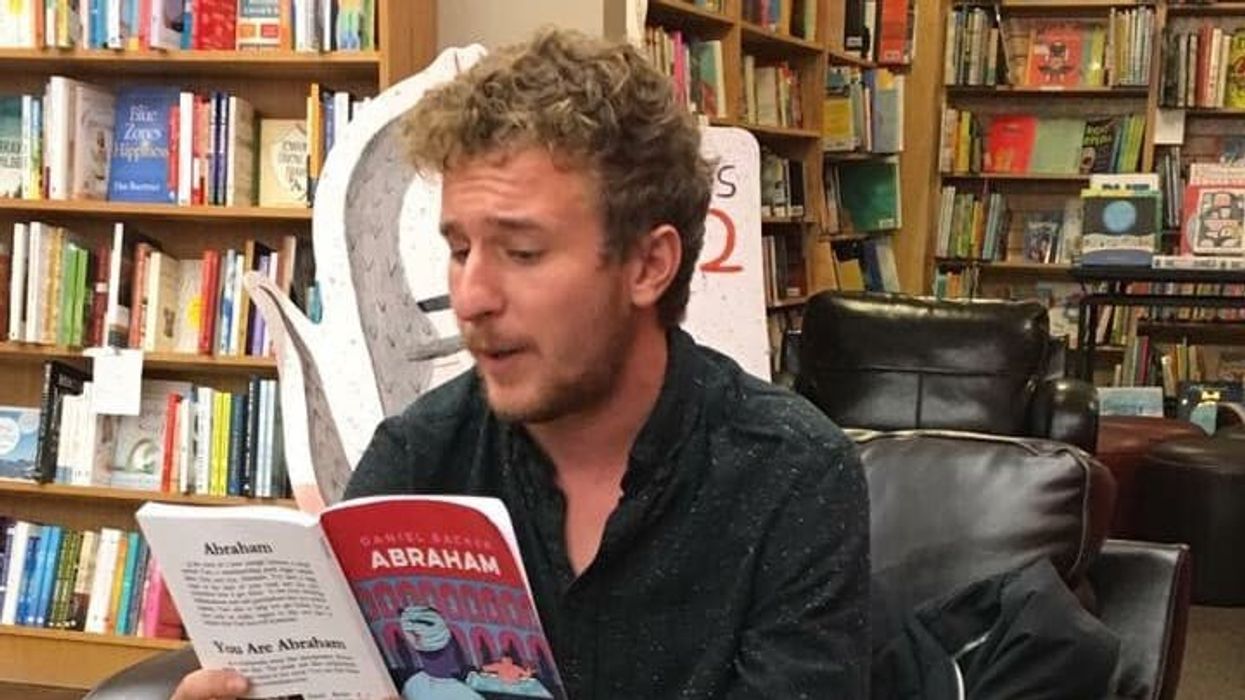






 11 Signs You've Greened Out and How to Handle It - The Bluntness
Photo by
11 Signs You've Greened Out and How to Handle It - The Bluntness
Photo by  11 Signs You've Greened Out and How to Handle It - The Bluntness
Photo by
11 Signs You've Greened Out and How to Handle It - The Bluntness
Photo by 






 What will you do with that cannabis kief collection? - Make Coffee! The Bluntness
What will you do with that cannabis kief collection? - Make Coffee! The Bluntness DIY: How to Make Kief Coffee - The Bluntness
Photo by
DIY: How to Make Kief Coffee - The Bluntness
Photo by 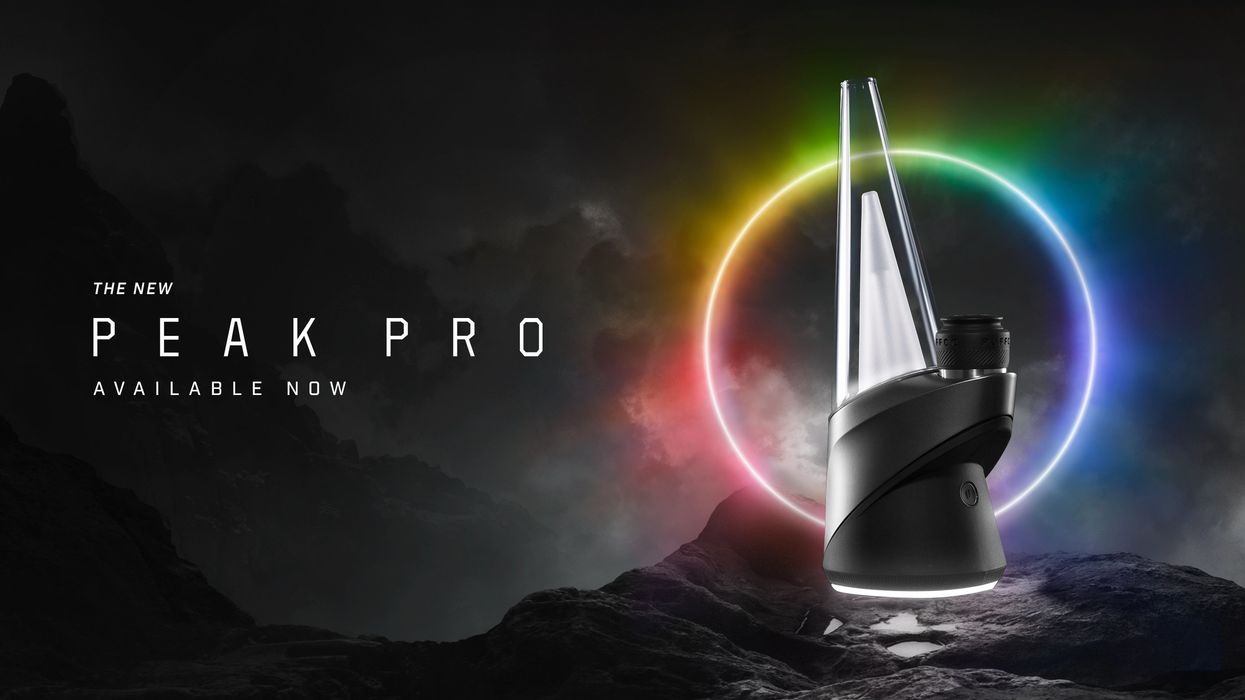
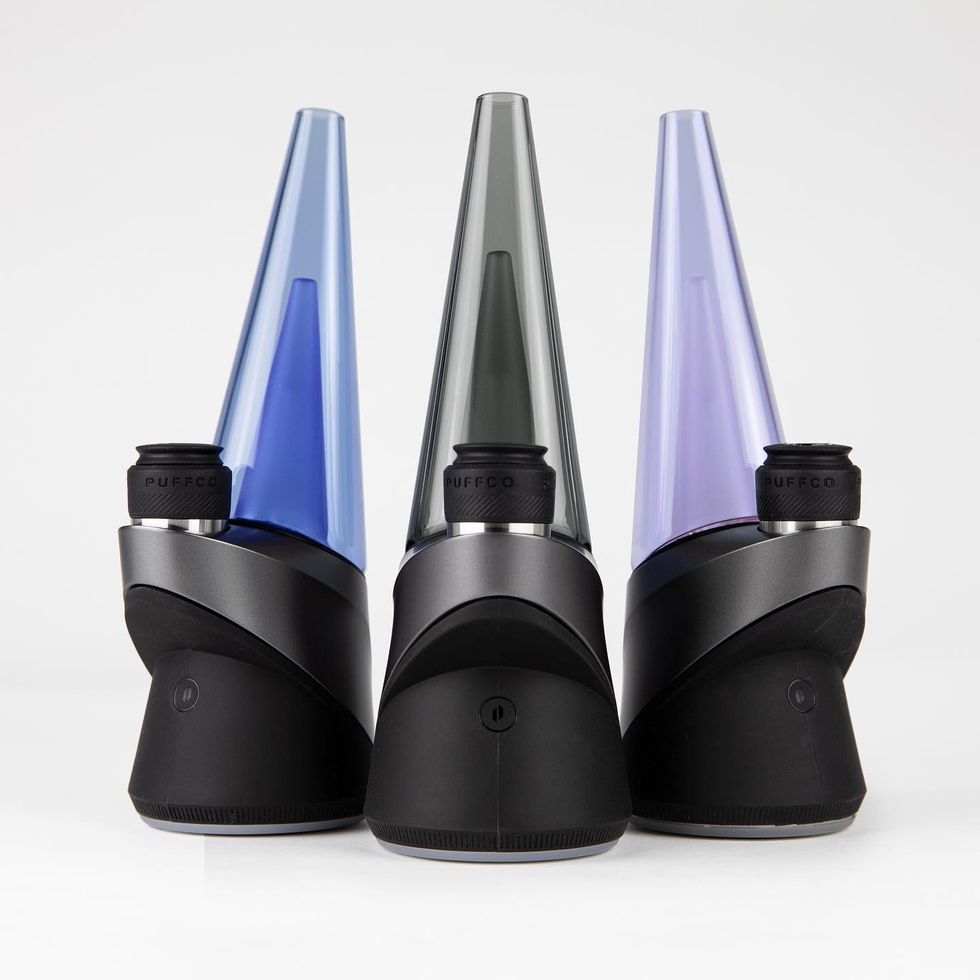 The Puffco Peak Pro brings style and ease to cannabis dabbing.Image from Puffco on Facebook
The Puffco Peak Pro brings style and ease to cannabis dabbing.Image from Puffco on Facebook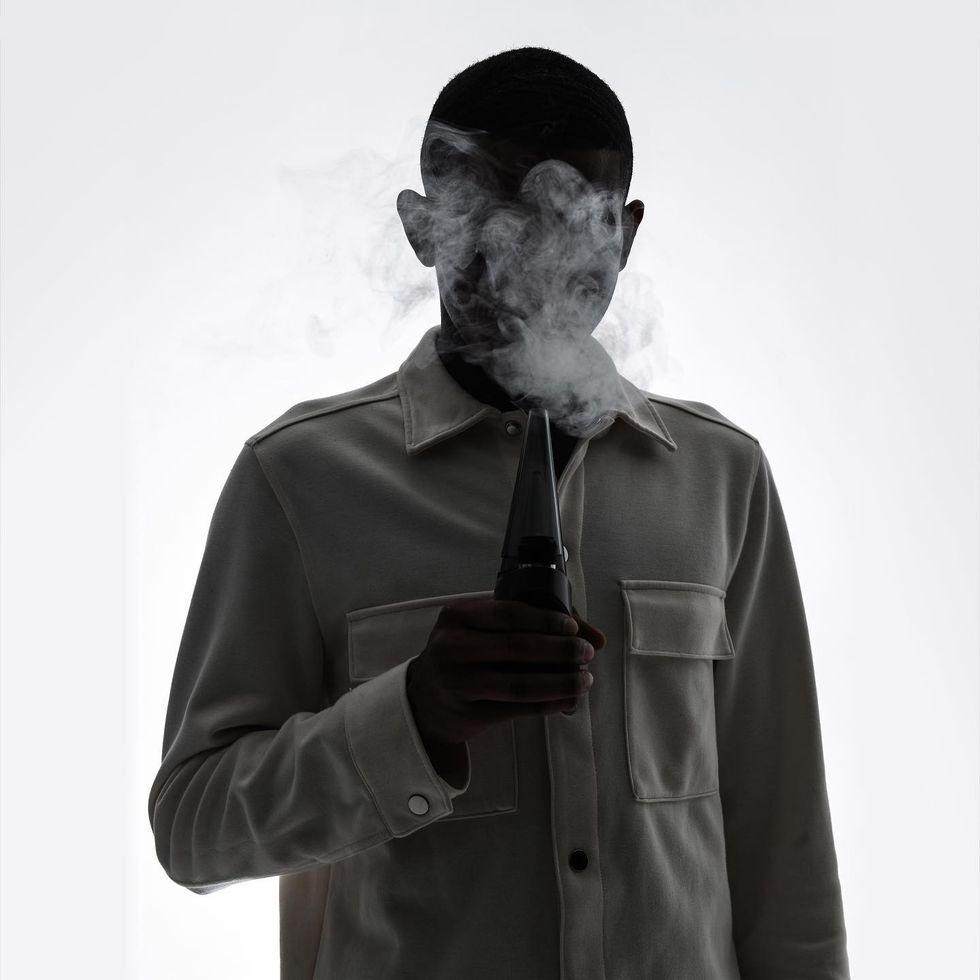 The Puffco Peak Pro is easy to hold AND easy to use.Image from Puffco on Facebook
The Puffco Peak Pro is easy to hold AND easy to use.Image from Puffco on Facebook The Puffco Peak Pro allows you to appreciate cannabis and innovation at the same time.Image from Puffco on Facebook
The Puffco Peak Pro allows you to appreciate cannabis and innovation at the same time.Image from Puffco on Facebook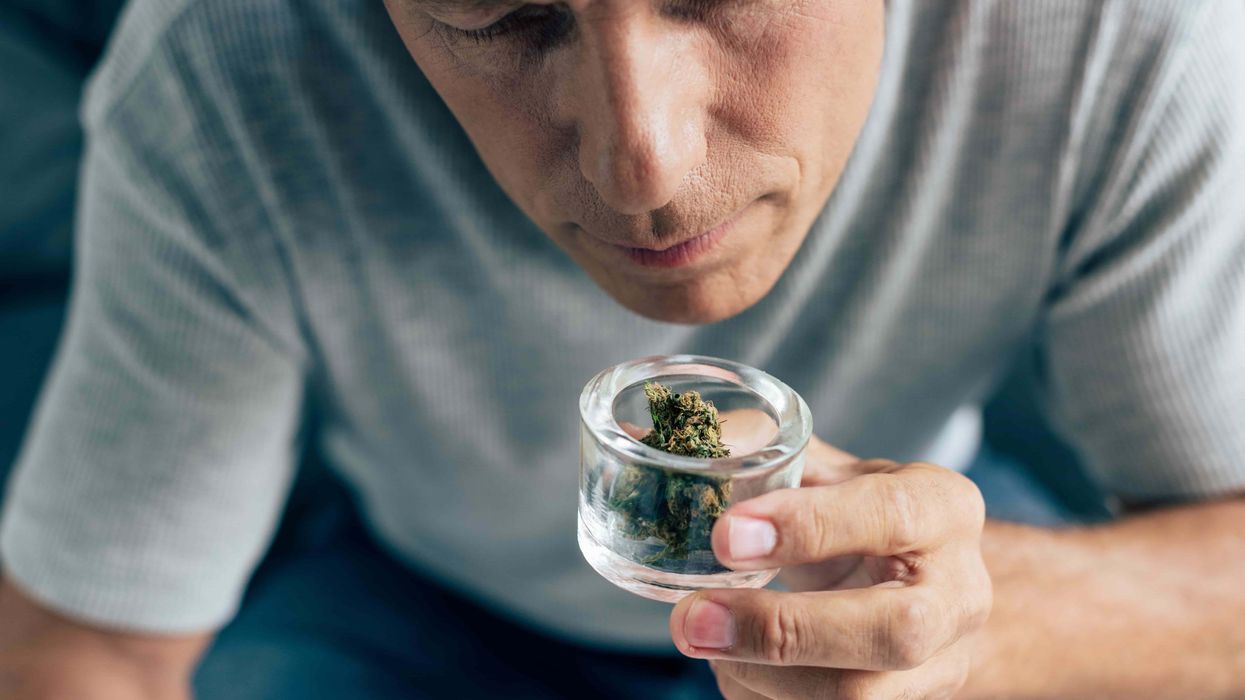
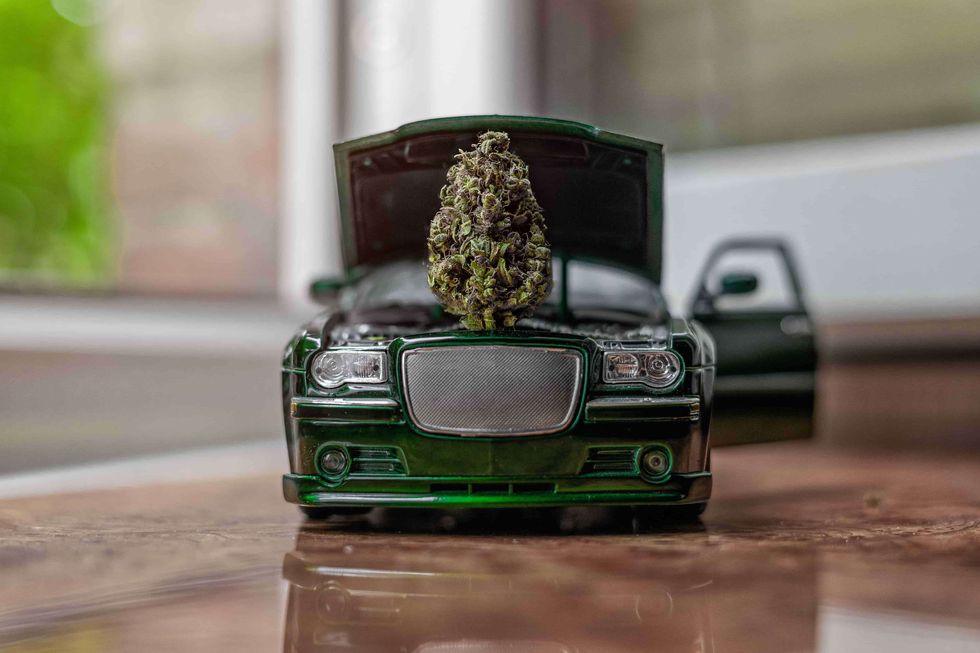 Smoking up in the car can be fun ... just don't plan on driving anywhere afterwards.
Smoking up in the car can be fun ... just don't plan on driving anywhere afterwards.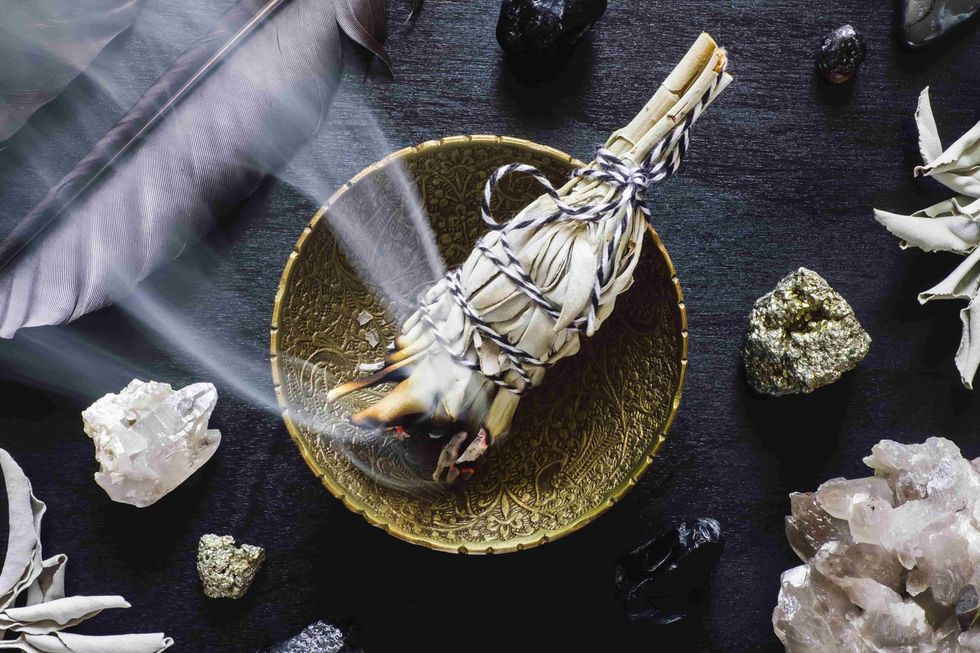 Burning sage is a great way to deodorize a room in a hurry. Just don't use it around pregnant women or babies.
Burning sage is a great way to deodorize a room in a hurry. Just don't use it around pregnant women or babies. Edibles are just one way to avoid smelling like cannabis entirely.
Edibles are just one way to avoid smelling like cannabis entirely.
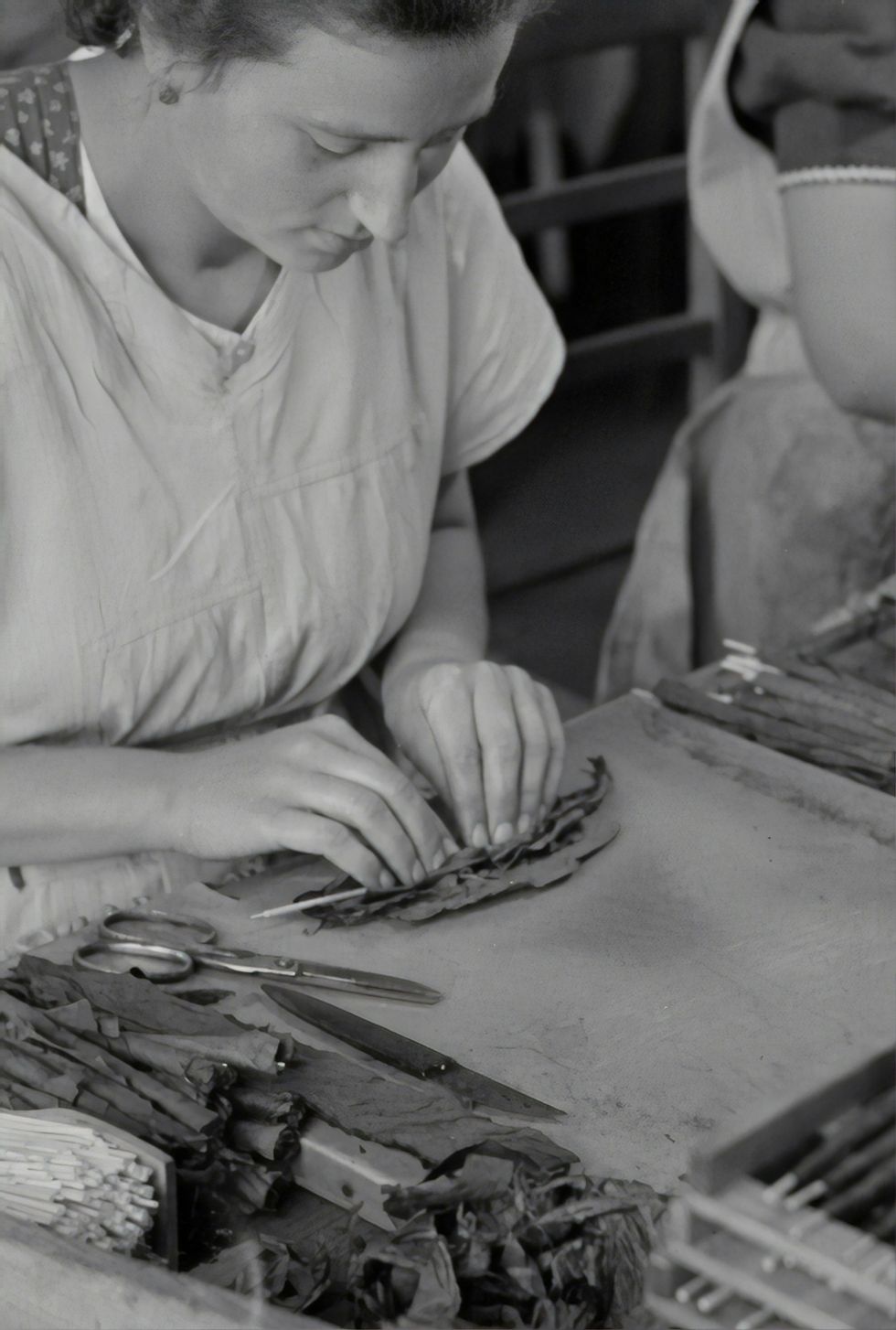 How to Make a Cannagar Without a Mold: A Comprehensive Guide - The Bluntness
Photo by
How to Make a Cannagar Without a Mold: A Comprehensive Guide - The Bluntness
Photo by